#Gonville and Caius College Cambridge
Explore tagged Tumblr posts
Text

Coast of Arms, Gonville and Caius College, Cambridge, 2010.
The complicated coat of arms is a consequence of two foundings and thus the compound name of the college. I have yet to find an adequate explanation of the scallop shells. If the college were in Spain, the answer would be simple, connections to Santiago, the saint and the pilgrimage.
#colleges and universities#coat of arms#gonville and caius college#cambridge#england#united kingdom#2010#photographers on tumblr
19 notes
·
View notes
Text

5 notes
·
View notes
Text
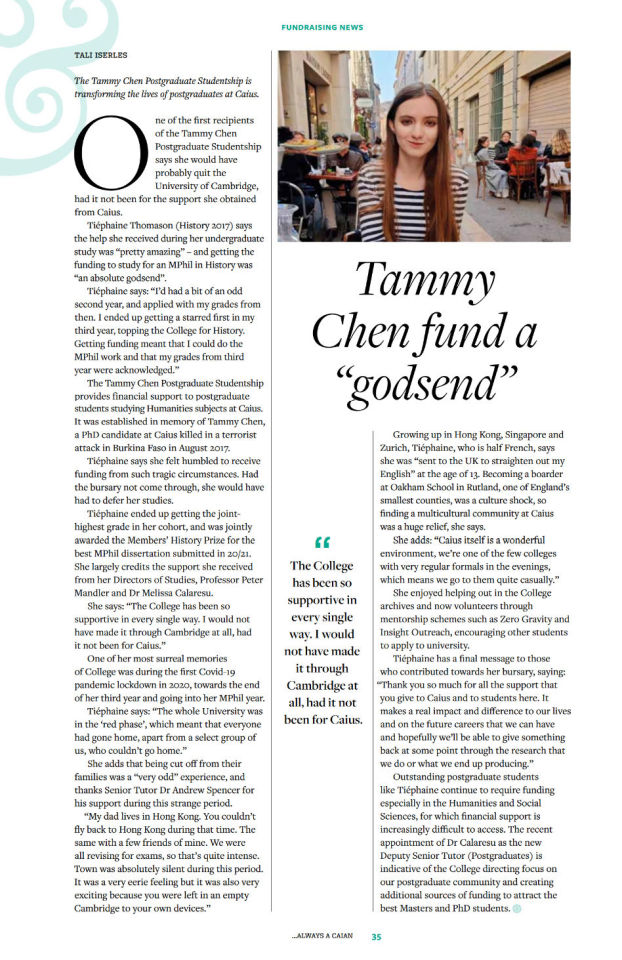
‘Tammy Chen Fund a “Godsend”’
—
The Tammy Chen Postgraduate Studentship is transforming the lives of postgraduates at Caius.
—
One of the first recipients of the Tammy Chen Postgraduate Studentship says she would have probably quit the University of Cambridge, had it not been for the support she obtained from Caius.
Tiéphaine Thomason (History 2017) says the help she received during her undergraduate study at Gonville & Caius College was “pretty amazing” — and getting the funding to study for an MPhil in Early Modern History was “an absolute godsend”. Tiéphaine said: “I’d had a bit of an odd second year, and applied with my grades from then. I ended up getting a starred first in my third year, topping the College for History. Getting funding meant that I could do the MPhil work and that my grades from third year were acknowledged.”
The Tammy Chen Postgraduate Studentship provides financial support to postgraduate students studying Humanities subjects at Caius. It was established in memory of Tammy Chen, a PhD candidate at Caius killed in a terrorist attack in Burkina Faso in August 2017. Tiéphaine says she felt humbled to receive funding from such tragic circumstances. Had the bursary not come through, she would have had to defer her studies.
Tiéphaine ended up getting the joint-highest MPhil grade in her cohort, and was jointly awarded the Members' History Prize for the best MPhil dissertation in Early Modern History submitted in 2020/21. She largely credited the support she received from the College, particularly her Directors of Studies Prof Peter Mandler and Dr Melissa Calaresu. She says: “The College has been so supportive in every single way. I would not have made it through Cambridge at all, had it not been for Caius.”
—
“The College has been so supportive in every single way. I would not have made it through Cambridge at all, had it not been for Caius.”
—
One of her most surreal memories of College was during the first Covid-19 pandemic lockdown in 2020, towards the end of her third year and going into her MPhil year. Tiéphaine says: “The whole University was in the ‘red phase’, which meant that everyone had gone home, apart from a select group of us, who couldn’t go home.”
She adds that being cut off from their families was a “very odd” experience, and thanked Senior Tutor Dr Andrew Spencer for his support during this strange period. Tiéphaine says: “In my case, my dad lives in Hong Kong. You couldn’t fly back to Hong Kong during that time. The same with a few friends of mine. We were all revising for exams, so that’s quite intense. Town was absolutely silent during this period. It was a very eerie feeling but it was also very exciting because you were left in an empty Cambridge to your own devices.” The students relaxed by having sing-a-longs to Simon & Garfunkel songs in the evenings and cooking international meals from their home countries, using the limited ingredients available at the time.
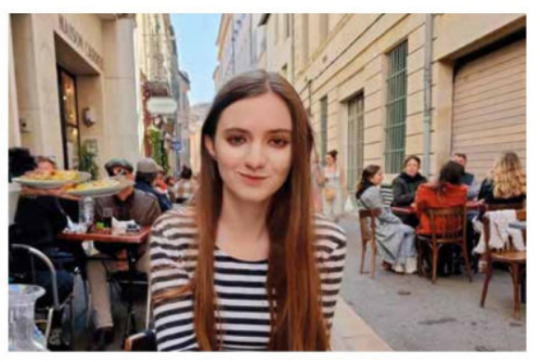
Growing up in Hong King, Singapore and Zurich, Tiéphaine, who is half-French, half-English, said she was “sent to the UK to straighten out my English” at the age of thirteen, having previously studied in French. Becoming a boarder at Oakham School in Rutland, one of England’s smallest counties, was a culture shock, so finding a multicultural community at Caius was a big relief, she says. She adds: “Caius itself is a wonderful environment, we’re one of the few colleges with very regular formals in the evenings, which means we go to them quite casually. When you go to formals at other colleges, people are always dressed in a very fancy way, whereas at Caius we’re all desperately trying not to get tomato soup on our gowns.”
She also enjoyed helping out in the College Archives and now volunteers through mentorship schemes such as Zero Gravity and Insight Outreach, encouraging other students to apply to university.
Tiéphaine has a final message to those who contributed towards her bursary, saying: “Thank you so much for all the support that you give to Caius and to students here. It makes a real impact and difference to our lives and on the future careers that we can have and hopefully we’ll be able to give something back at some point through the research that we do or what we end up producing.”
Tiéphaine recently discovered that she has been successful in receiving full funding from the Harding Distinguished Postgraduate Scholarships Programme to study for a PhD in Early Modern History at the University of Cambridge, based at Murray Edwards College, from 2022/23. There, she will be looking at the spread of spoken French across the early modern Francophone Atlantic. While the College is sorry to see Tiéphaine leave, we know she will stay in touch with the fellows and students at Caius.
Outstanding students like Tiéphaine continue to require funding, especially in the Humanities and Social Sciences, for which financial support is increasingly difficult to access. The appointment of Dr Calaresu as the new Deputy Senior Tutor for Postgraduates is indicative of the College directing focus on our postgraduate community and creating additional sources of funding to attract the best postgraduate students.
—
written up by Tali Iserles | ‘Once a Caian’, Issue 22, p. 355 (15 November 2022) | ‘Caius News’ (22 May 2022)
#‘Once a Caian’#‘...Always a Caian’#Issue 22#Tammy Chen Fund#Tammy Chen Postgraduate Studentships#Humanities Postgraduate Studentships#History Postgraduate Studentships#Gonville & Caius College#Caius College#Cambridge#Oakham School#Oakham#Tiéphaine Thomason#Tiephaine Thomason#BA in History#MPhil in Early Modern History#Members History Prize
0 notes
Text
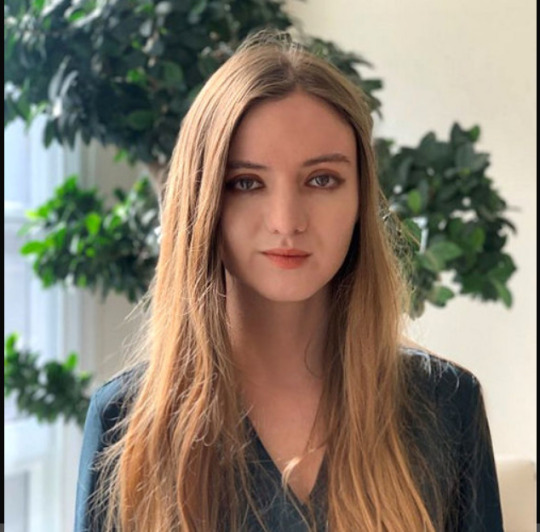
Link: I... [expand] Alt Text: An image of a person, appearing to be a young woman, with light skin, light brown eyes, and long, fine, light brown hair in a dark shirt in front of a white office background. The person has been publicly listed as an associate by the name of "Tiéphaine Thomason" at the firm "Bohill Partners" in "2021" and "2022."
Bohill Partners describes itself as "a specialist executive search firm, providing retained search and advisory services. It delivers an outstanding service to clients and candidates alike, facilitated by its deep sector knowledge, extensive global network and refined search process."
According to Bohill Partners, "Tiéphaine Thomason joined in 2021 as an Associate. Raised across Hong Kong, Singapore and Zürich, Tiéphaine is a native French and English speaker, with additional skills in German and Spanish. Prior to joining Bohill Partners, Tiéphaine studied at the University of Cambridge, where she graduated from Gonville & Caius College with a BA Hons in History, specialising in Political Thought, before undertaking an MPhil in Early Modern History. Throughout her studies, Tiéphaine was heavily involved in several student consulting groups and her college’s history society."
#recruitment#real assets#executive search#bohill#bohill partners#bohill associates#policy#advisory#investment#managment#economics#politics#political#legal#law#recruiter#associate#intern#contact#cambridge#gonville and caius college#gonville & caius college#history#history society#political society#consultancy#tiéphaine thomason#tiephaine thomason
1 note
·
View note
Text
This post is SPITTING FACTS about what titles KC can remove from Harry. FACT: KC can strip Harry of Prince and HRH. This is not a youtube opinion but the informed opinion of a highly credentialed professor emeritus of public law by u/Positive-Vibes-2-All
This post is SPITTING FACTS about what titles KC can remove from Harry. FACT: KC can strip Harry of Prince and HRH. This is not a youtube opinion but the informed opinion of a highly credentialed professor emeritus of public law I had it up to my wazoo reading and hearing conflicting opinions of what KC is able to do regarding titles so I went searching for a rock solid answer."Master Graham Zellick is a Senior Master of the Bench and former Reader, is emeritus professor of public law and former Principal of Queen Mary & Westfield College, sometime Vice-Chancellor of the University of London, a former editor of Public Law, and was Chairman of the Criminal Cases Review Commission, President of the Valuation Tribunal for England and a member of the Investigatory Powers Tribunal. He is an Honorary Fellow of Gonville & Caius College, Cambridge and of the Society for Advanced Legal Studies."In no uncertain terms, Zellick states that KC can remove HRH and Prince"....The title of Prince is likewise in the gift of the Monarch. As with ‘HRH’, it is usually acquired by coming within a class or category stipulated in letters patent, but it can also be done individually.....There is no reason why the Sovereign cannot remove these titles, a decision which again could not be challenged in the courts, since the royal prerogative in relation to honours and titles is said to be unreviewable or ‘non-justiciable’. The exercise of prerogative powers is in principle subject to supervision by the courts in the same way that statutory powers are – as Boris Johnson discovered in 2019 when his attempt to prorogue Parliament was annulled by the Supreme Court – but powers exercised by the Monarch personally otherwise than on ministerial advice or in relation to honours fall into the non-justiciable category. "imho It would be more fitting and send a stronger message and cut deeper to strip the title Prince then stripping Harry of his Dukedom which as Zellick explains at the link would need to be done by parliament. Harry is the one who should bear the brunt of responsibility, he has been the traitor to his family, he is just as responsible as Markle for employing scum like Boozy and other sugars to name just two instances of his treachery.https://ift.tt/36MDgNh'. post link: https://ift.tt/zNryWkq author: Positive-Vibes-2-All submitted: August 18, 2024 at 10:23PM via SaintMeghanMarkle on Reddit disclaimer: all views + opinions expressed by the author of this post, as well as any comments and reblogs, are solely the author's own; they do not necessarily reflect the views of the administrator of this Tumblr blog. For entertainment only.
#SaintMeghanMarkle#harry and meghan#meghan markle#prince harry#fucking grifters#grifters gonna grift#Worldwide Privacy Tour#Instagram loving bitch wife#duchess of delinquency#walmart wallis#markled#archewell#archewell foundation#megxit#duke and duchess of sussex#duke of sussex#duchess of sussex#doria ragland#rent a royal#sentebale#clevr blends#lemonada media#archetypes with meghan#invictus#invictus games#Sussex#WAAAGH#american riviera orchard#Positive-Vibes-2-All
12 notes
·
View notes
Text
Confs: 23rd Old-World Conference in Phonology
The 23rd Old-World Conference in Phonology (OCP23) will take place at Gonville & Caius College in Cambridge (United Kingdom) from 14 January to 16 January 2026. We invite submissions reflecting various perspectives on phonology, including but not limited to formal, typological, and laboratory approaches. Abstracts based on first-hand empirical data, especially field data on lesser-resourced languages, are particularly encouraged. The conference will be held in person, though an online option http://dlvr.it/TKCP2F
0 notes
Text






some of my favourite lino prints of Gonville & Caius college, where I used to work, and Kings College in Cambridge.
0 notes
Text

Gonville & Caius College, Cambridge, U.K. [OC] https://ift.tt/fnqW9wP https://ift.tt/fnqW9wP Submitted November 14, 2024 at 03:27PM by ProfessorFoglio https://ift.tt/w3HZd7k via /r/ArchitecturePorn
1 note
·
View note
Text
Jeremy Taylor (1613–1667)
13 de agosto – Memória de Jeremy Taylor, Bispo, poeta e escritor Jeremy Taylor nasceu em Cambridge em 1613 e lá permaneceu até completar os estudos no Gonville & Caius College, sendo ordenado ao sacerdócio na Igreja Anglicana em 1633 e eleito membro da faculdade. �� época, chamou a atenção do famoso Arcebispo Laud, que o indicou para uma bolsa de estudos no All Souls College e futuramente o…

View On WordPress
0 notes
Text
Jimmy Carr Net Worth
Jimmy Carr, the Irish-born comedian with a razor-sharp wit and penchant for dark humor, has carved a unique path in the world of entertainment. From his deadpan delivery to his thought-provoking jokes, Carr has built a career that spans stand-up comedy, television hosting, and writing. But beyond the laughter and accolades, lies a natural curiosity: how much is Jimmy Carr's net worth?
Estimating the net worth of any celebrity is inherently challenging, and Carr is no exception. Various sources offer differing figures, ranging from £12 million to £25 million (approximately $15 million to $31 million USD). This disparity stems from the multifaceted nature of his career, encompassing diverse income streams that are not always publicly disclosed.
Early Life and Career Beginnings:
Born James Anthony Patrick Carr in Limerick, Ireland, in September 1972, Carr's journey to comedic success wasn't exactly conventional. After graduating from Gonville and Caius College, Cambridge, with a degree in marketing, he embarked on a corporate career, working at Shell and Ernst & Young. However, the allure of comedy proved too strong. In 1997, he took the plunge into stand-up, starting out in open mic nights and comedy clubs.
Rise to Prominence:
Carr's unique style, characterized by dark jokes and a signature laugh, quickly set him apart. By the early 2000s, he was a rising star, performing around the globe and racking up awards, including the British Comedy Award for Best Stand-up Comedian in 2006.
Television Success:
Beyond stand-up, Carr established himself as a popular television personality. He began hosting shows like "8 Out of 10 Cats" and "The Big Fat Quiz of the Year", captivating audiences with his quick wit and sharp comedic timing. These shows not only garnered high ratings but also contributed significantly to his public profile and potential earnings.
Other Ventures:
Carr's career extends beyond stand-up and television. He has authored several best-selling books, including "The Naked Joke", and co-founded the production company "2nd Productions". These ventures further diversify his income streams and contribute to his overall net worth.
Maintaining Privacy:
Unlike many celebrities who openly discuss their finances, Carr maintains a certain air of mystery about his wealth. He rarely speaks publicly about his earnings, making it difficult to pinpoint an exact figure.
Focus on the Work:
While the specific details of his net worth remain elusive, one thing is clear: Jimmy Carr's primary focus lies in his craft. He continues to tour extensively, write new material, and explore different comedic avenues. His dedication to his work and his ability to consistently entertain audiences are the cornerstones of his enduring success.
Conclusion:
Jimmy Carr's career trajectory is a testament to his talent, hard work, and ability to connect with audiences. While his exact net worth remains an estimate, his impact on the world of comedy is undeniable. He continues to push boundaries, challenge perceptions, and leave audiences in stitches, solidifying his place as one of the most successful and influential comedians of his generation.
0 notes
Text
6TH August in the Medical History
Pioneering Work by William Hyde Wollaston in Chemistry and Medical Science

I. Introduction
Eminent English chemist William Hyde Wollaston (1766–1828) made ground-breaking discoveries and developments that had a profound impact on both chemistry and medicine. His lifetime of work, which spanned the late 18th and early 19th centuries, created the groundwork for contemporary metallurgy, spectroscopy, and crystallography. Palladium and rhodium’s groundbreaking isolation by Wollaston changed catalysis and medical applications. Additionally, he improved scientific illustration and microscopy through the creation of the Reflecting Goniometer and the Camera Lucida, which had an impact on medical imaging methods. This article explores Wollaston’s varied contributions and demonstrates his crucial influence on the fields of chemistry and medical science.
II. Early Life and Education
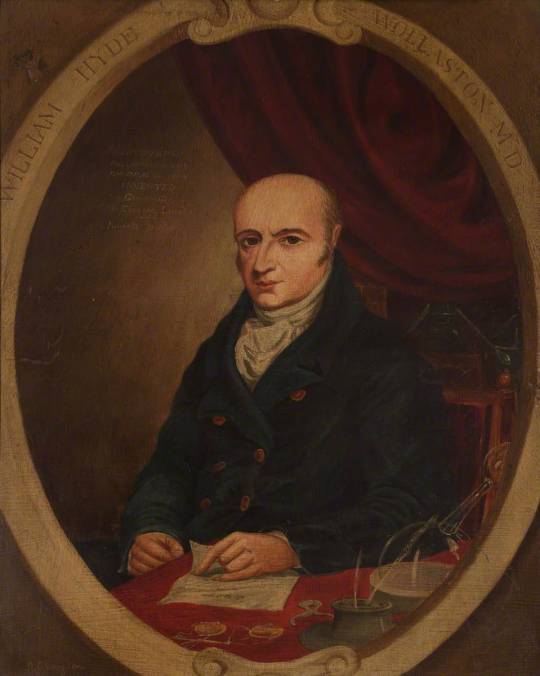
William Hyde Wollaston, born August 6, 1766, in East Dereham, England, showed an early aptitude for science. He studied medicine at Cambridge’s Gonville and Caius College but gravitated toward chemistry and natural sciences under the guidance of mentor John Gough. Although he didn’t complete his medical degree, his formative years at Cambridge nurtured his analytical skills and curiosity. His subsequent significant contributions to chemistry and medicine were built on the foundation of these early experiences.
III. Contributions to Chemistry
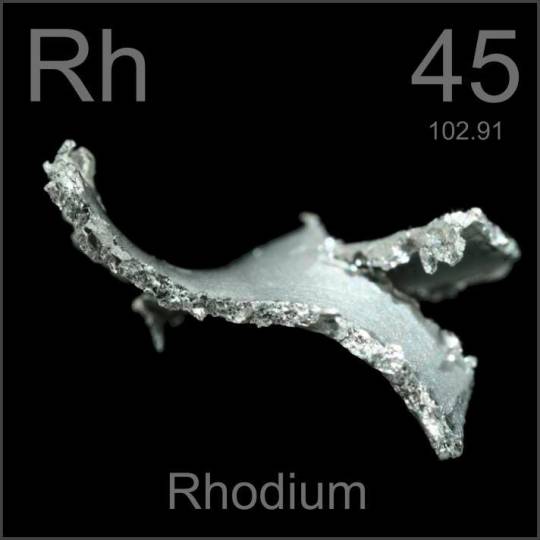
William Hyde Wollaston made significant and enduring contributions to the discipline of chemistry that will always be remembered in the history of science. His creation of the Reflecting Goniometer, a ground-breaking tool that revolutionized crystallography, is among his most famous accomplishments. This tool made it possible to measure crystal angles precisely, which advanced our understanding of mineral structures and molecular groupings. The Reflecting Goniometer completely changed the field by giving scientists an effective tool to decipher the properties of crystalline materials.
In 1803 and 1804, respectively, Wollaston made the extraordinary discoveries of two new elements: palladium and rhodium. He was able to successfully extract these components from platinum ore because to his painstaking procedures and creative approaches. The periodic table was widened by these discoveries. PAlloy and rhodium were used in a variety of chemical processes that were important for the development of pharmaceuticals and other industries, as well as catalytic converters that reduce the environmental impact of automotive emissions.
Wollaston’s creation of the Camera Lucida further displayed his skill in interdisciplinary research by uniting art and science. By enabling researchers to trace tiny specimens, this tool aided in the documentation and dissemination of scientific discoveries and allowed for correct scientific depiction. Modern microscopy and imaging methods owe their development largely to Wollaston’s contributions. Overall, William Hyde Wollaston’s inventiveness and intellectual prowess continue to motivate researchers and influence chemistry and other sciences.
IV. Medical Applications
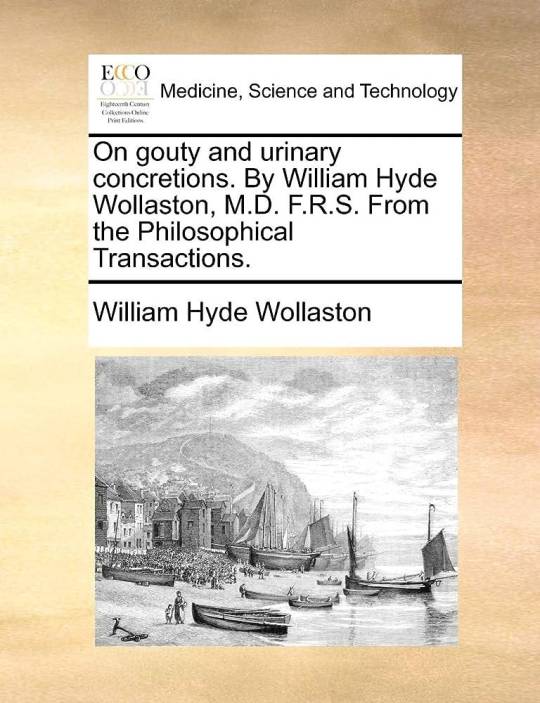
Medical uses for Wollaston’s contributions to chemistry, such as the isolation of palladium and rhodium, can be found in prosthetics, dental materials, and cutting-edge spectroscopy-based diagnostics.
V. Legacy and Recognition

His groundbreaking contributions to chemistry and medicine, which influenced modern scientific understanding, are what will live on as Wollaston’s lasting legacy. His contributions to crystallography, palladium, and rhodium continue to have an impact on medical technology, catalysis, and materials science. His innovations of the Camera Lucida and the Reflecting Goniometer enhanced scientific illustration and microscopy, having an impact on many fields. Wollaston’s discoveries provided the groundwork for significant medical improvements, and his thorough research methodology continues to serve as a standard for scientific investigation. His accomplishments include participation in esteemed organizations and long-lasting awards, which have solidified his place as a trailblazing figure in the annals of scientific history.
VI. Conclusion

In conclusion, William Hyde Wollaston made significant contributions to chemistry and medicine that will always be remembered in the history of science. His inventiveness, demonstrated by discoveries like palladium and the Reflecting Goniometer, has sped up the development of materials, medical equipment, and catalysis. As we look to the future, contemporary technologies that build on Wollaston’s legacy include QMe Healthcare System Software, which improves medical diagnostics, patient care, and research. Scientists are still motivated by Wollaston’s legacy, and his collaborative method of doing multidisciplinary research serves as an example, highlighting the revolutionary potential of fusing scientific research with cutting-edge technology for the benefit of humanity.
0 notes
Photo
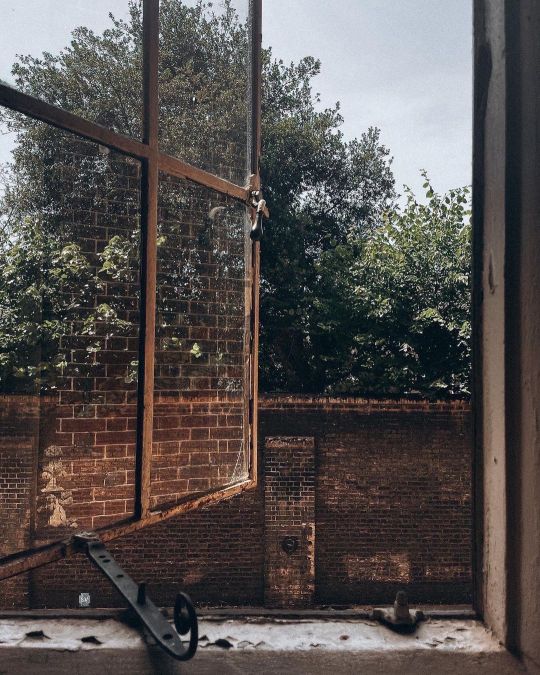
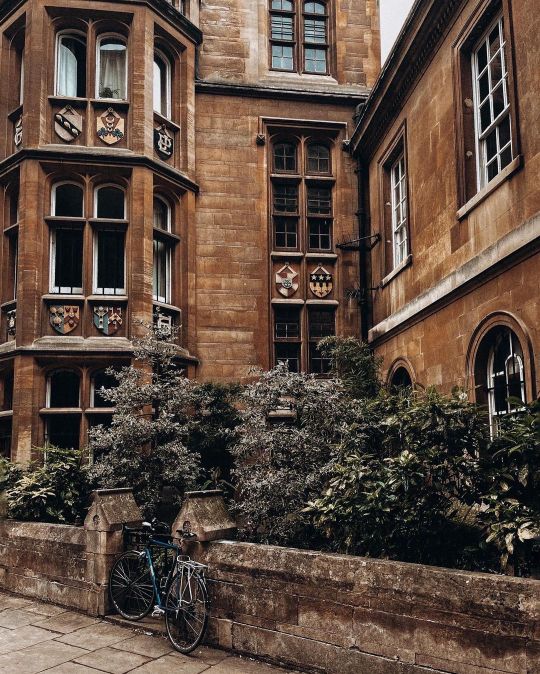

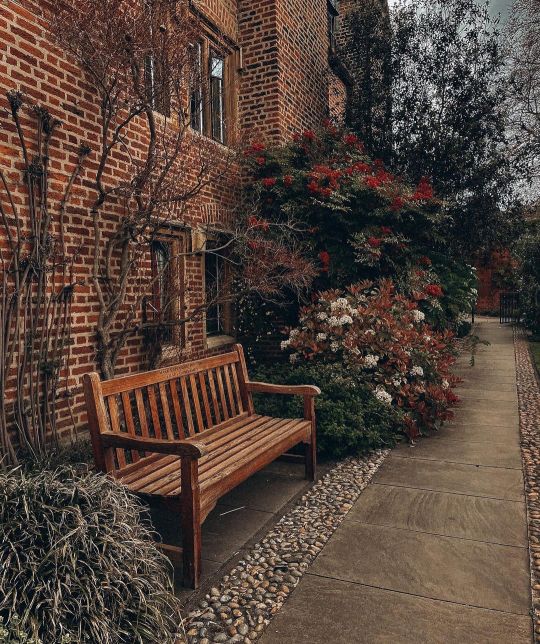
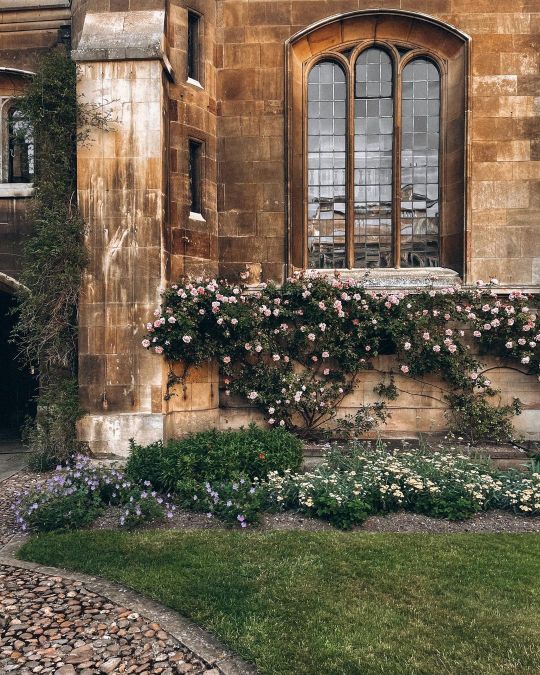
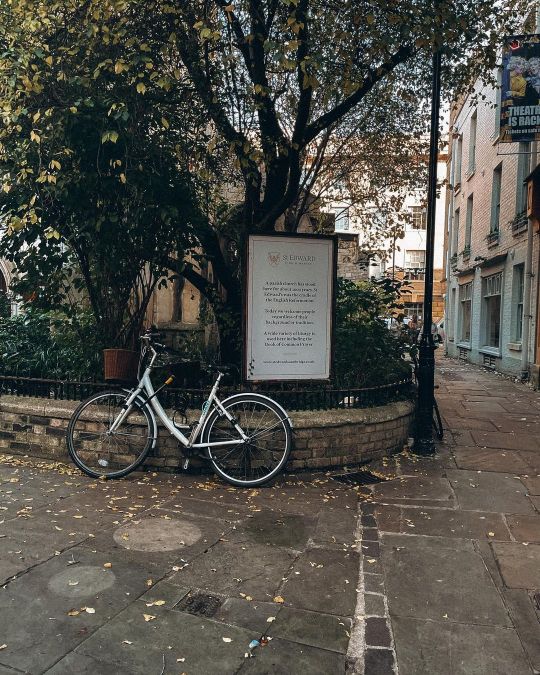
Instagram credit: fieldnotesbyfi
#gonville & caius college#cambridgeshire#cambridge#england#uk#united kingdom#streets#street#green#nature vibes#nature#autumn colors#autumn#fall aesthetic#fall#flowers#flower
6K notes
·
View notes
Photo

Gonville & Caius / Trinity Hall Gonville / Trent Bateman
Born in 1348 and 1350 respectively, the two, like twin brothers, are always found together. Trinity Hall's founder, Bishop Bateman ensured Gonville Hall's survival after Edmund Gonville passed away. And he even made them sign a brotherly treaty! '... two societies made a perpetual treaty of amity as between brothers issuing from the stock of a single foundation, undertaking to walk together in public processions'
Gonville is outgoing, action-oriented and often the life of the party. He’s served as medic and surgeon during plagues and wars. Having seen the fragility of life, he cherishes the time spent face to face with his sibling and friends. He’s often the one who initiate meal gatherings, while Valence helps with cooking. (Eating together is emphasised in Gonville & Caius college; it has 2 formal meal times, the earlier one is swifter to cater for students with evening commitments.)
Trinity is endearingly called 'Tit Hall' so I gave him wings of a marsh tit. He’s quick-witted and observant. Though not particularly expressive, he notices when Valence or Benedict were at the brink of collapsing, and tried to cheer them up. He’s also someone rulers would see as a threat - he obeys earthly authority, but only for God’s sake, silently observing and evaluating their every decision.
(Caius & Trinity Hall are known for studies of medicine and law respectively!)
PS. The personified colleges’ name will be (their original name/something that sounds similar if it’s a theological term) + (founder’s surname if not already included in first name) + Cambridge.
#loveprotects#cambridge#colleges#personification#artists on tumblr#artnouveau#trinity hall#gonville and caius college#illustration#csp
9 notes
·
View notes
Photo
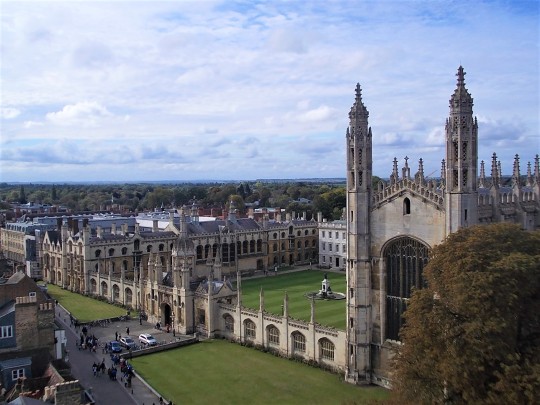
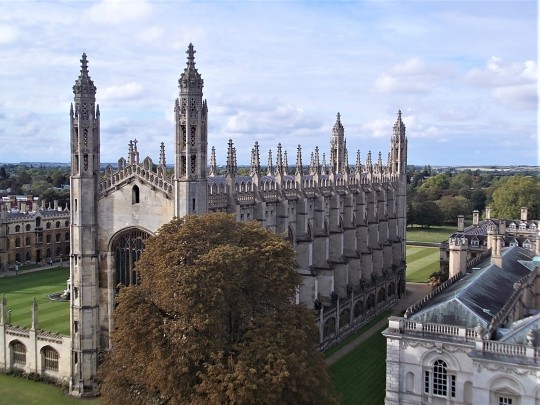
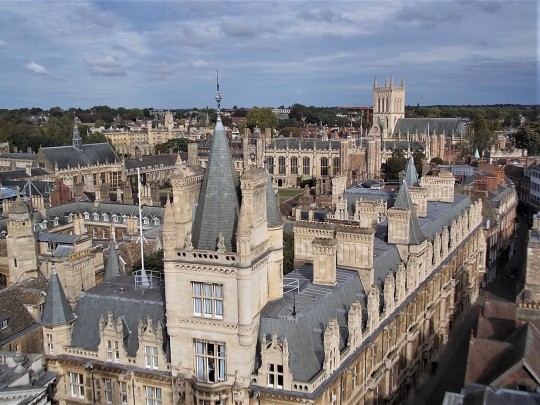
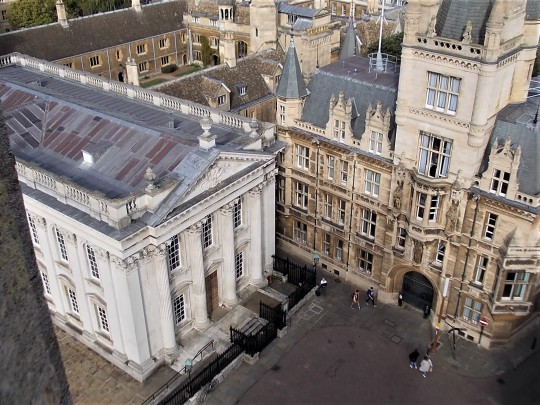
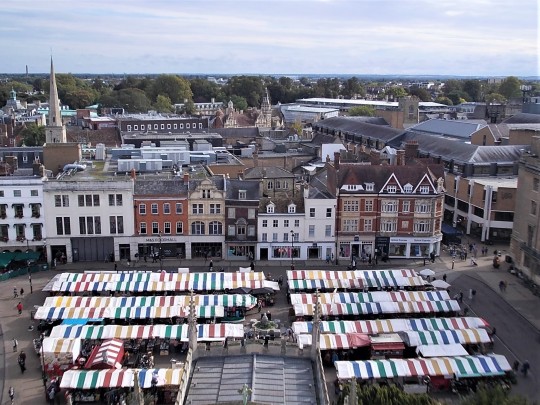
Views of Cambridge, UK, from the tower of Great St. Mary’s Church. Photos by Charles Reeza, October 2019.
#King's College Chapel#Gonville & Caius#Senate House#market square#bell tower#architecture#Cambridge#England#travel photography
13 notes
·
View notes
Text
Sir David Frost
Sir David Paradine Frost, Kt., OBE (born 7 April 1939) is an English journalist, comedian, writer, media personality and daytime TV game show host best known for his two decades as host of Through the Keyhole and serious interviews with various political figures, the most notable being Richard Nixon. Since 2012 he has been hosting the weekly programme The Frost Interview. From 2006-2012 he hosted the weekly programme Frost Over the World on Al Jazeera English.
Early life
David Paradine Frost was born in Tenterden, Kent, on 7 April 1939 as the son of a Methodist minister of Huguenot descent,[citation needed] the Rev. W. J. Paradine Frost, and his wife Mona, and with two elder sisters.[1] While living in Gillingham, Kent, he was taught in the Bible class of the Sunday school at his father's church (Byron Road Methodist) by David Gilmore Harvey, and subsequently started training as a Methodist local preacher, which he did not complete. He attended Barnsole Road Primary School in Gillingham, then Gillingham Grammar School and finally Wellingborough Grammar School,[2] while residing in Raunds, as his father worked as a minister at the Methodist church there. He subsequently won a place at Gonville & Caius College, Cambridge, where he graduated with a degree in English. Throughout his school years he was an avid football (soccer) and cricket player,[1] and was actually offered a contract with Nottingham Forest F.C., which he turned down in order to attend university.[3]
At Cambridge, he was editor of both the student newspaper, Varsity, and the literary magazine, Granta. He was also secretary of the famous Footlights Drama Society,[1] which included actors such as Peter Cook and John Bird.
After leaving university, he became a trainee at Associated-Rediffusion and worked for Anglia Television.
That Was the Week That Was (TW3)
Frost was chosen by writer and producer Ned Sherrin to host a pioneering satirical programme called That Was The Week That Was, alias TW3. This caught the wave of the satire boom in 1960s Britain and became a popular programme. TW3 was the last piece of scheduled programming broadcast by the BBC on a Saturday, and regularly overran its time slot.[citation needed]
After a pilot episode on 10 November 1963, a 30-minute American version of TW3 featuring Frost ran on NBC from 10 January 1964 to May 1965. In 1985, David Frost produced and hosted a television special in the same format, That Was the Year That Was, on NBC.
After TW3
Frost fronted a number of programmes following the success of TW3, including its immediate successor, Not So Much a Programme, More a Way of Life, which he co-chaired with Willie Rushton and P. J. Kavanagh. More notable was The Frost Report, 1966 and 1967, which launched the television careers of John Cleese, Ronnie Barker and Ronnie Corbett. He signed for Rediffusion, the ITV weekday contractor in London, to produce a "heavier" interview-based show called The Frost Programme. Guests included Sir Oswald Mosley and Rhodesian premier Ian Smith. His memorable dressing-down of insurance fraudster Emil Savundra was generally regarded as the first example of "trial by television" in the UK.
In 1963, a tribute to the recently assassinated President John F. Kennedy on That Was the Week That Was had seen Frost's fame spread to the United States. His 1970 TV special, Frost on America, featured guests such as Jack Benny and Tennessee Williams.[4]
From 1969 to 1972, Frost kept his London shows and fronted The David Frost Show on the Group W (U.S. Westinghouse Corporation) television stations in the United States.[5] In 1977, he met former US President Richard Nixon in a series of interviews for American television.
That same year Frost was the executive producer of the Academy Award-nominated The Slipper and the Rose. Frost was an organiser of the Music for UNICEF Concert at the United Nations General Assembly in 1979. Ten years later, Frost was hired as the anchor of the new American tabloid news program Inside Edition. However, he was dismissed after only three weeks, and then-ABC News reporter Bill O'Reilly was recruited in his stead.
During the 1980s, 90s and 2000s, he presented the panel game Through the Keyhole on daytime TV, which featured a long running partnership with Loyd Grossman.
After transferring from ITV, his Sunday morning interview programme Breakfast with Frost ran on the BBC from January 1993 until 29 May 2005. The programme originally began in this format on TV-am in September 1983 as Frost on Sunday until the station lost its franchise at the end of 1992. Later it transferred briefly to BSB before moving to the BBC.
Since then he has worked for Al Jazeera English, presenting a live weekly hour-long current affairs programme, Frost Over the World, which started when the network launched in November 2006. The programme has regularly made headlines with interviewees such as Tony Blair, President Omar al-Bashir of Sudan, Benazir Bhutto and President Daniel Ortega of Nicaragua. The programme is produced by the former Question Time editor and Independent on Sunday journalist Charlie Courtauld. He was one of the first to interview the man who authored the historic fatwa on terrorism, Dr Muhammad Tahir-ul-Qadri.[6]
During his career as a journalist he became one of Concorde's most frequent fliers, having flown between London and New York an average of 20 times per year for 20 years.[7][8]
In 2007, Frost hosted a discussion with Libya's leader Gaddafi as part of the Monitor Group's involvement in the country.[9]
In June 2010, Frost presented Frost on Satire, an hour-long BBC Four documentary looking at the history of television satire. Prominent satirists who were interviewed for the programme include Rory Bremner, Ian Hislop, John Lloyd, Chevy Chase, Bill Maher, Jon Stewart, Will Ferrell and Tina Fey.
Achievements
Frost was instrumental in starting up two important ITV franchises: London Weekend Television in July 1968 and as one of the 'Famous Five' who launched TV-am in February 1983. Both new stations had plans that were considered highbrow and both suffered launch problems with low audience ratings and financial difficulties that led to outside parties taking large stakes in the companies and significant changes in business strategy before stability was achieved.
On 20 and 21 July 1969, during the British television Apollo 11 coverage, he presented David Frost's Moon Party for LWT, a ten-hour discussion and entertainment marathon from LWT's Wembley Studios, on the night Neil Armstrong walked on the moon. Two of his guests on this programme were British historian A.J.P. Taylor and Sammy Davis, Jr.[10]
Frost started the production company David Paradine Productions, and was also part of a consortium with Richard Branson that failed to acquire three ITV franchises under the CPV-TV name.
Frost's longest television association was with the daytime panel show Through the Keyhole. The programme, produced by his David Paradine Productions company, ran on various channels from 1987 until 2008, with Frost acting as host throughout. To younger generations, Frost is chiefly known for his role on this show, alongside Loyd Grossman.
Frost is the only person to have interviewed eight British prime ministers serving between 1964 and 2010 (Harold Wilson, Edward Heath, James Callaghan, Margaret Thatcher, John Major, Tony Blair, Gordon Brown and David Cameron) and the seven US presidents in office between 1969 and 2008 (Richard Nixon, Gerald Ford, Jimmy Carter, Ronald Reagan, George H. W. Bush, Bill Clinton and George W. Bush). He was also the last person to interview Mohammad Reza Pahlavi, the last Shah of Iran.[11]
He is a patron and former vice-president of the Motor Neurone Disease Association charity, as well as being a patron of the Alzheimer's Research Trust, the Hearing Trust,[12] East Anglia's Children's Hospices, the Home Farm Trust and the Elton John AIDS Foundation.[13][14][15]
After having been in television for 40 years, Frost is worth £200 million.[16] This valuation includes the assets of his main British company and subsidiaries, plus homes in London and the country.
Frost/Nixon
Main articles: The Nixon Interviews, Frost/Nixon (play), and Frost/Nixon (film)
Originally a play by Peter Morgan that was developed from a series of interviews, Frost/Nixon was presented both in London and on Broadway. The play was adapted into a motion picture, starring Michael Sheen as David Frost, Frank Langella as Richard Nixon, directed by Ron Howard, and released in 2008. The film was nominated for five Golden Globe awards: Best Motion Picture Drama, Best Director, Best Actor, Best Screenplay and Best Original Score,[17] as well as five Academy Awards: Best Picture, Best Actor, Best Director, Best Adapted Screenplay, and Best Editing.
In February 2009, David Frost was featured on the Australian Broadcasting Corporation's (ABC-TV) international affairs programme Foreign Correspondent in a report titled "The World According To Frost", reflecting on his long career and portrayal in the feature film Frost/Nixon.[18]
Personal life
Before his present marriage, Frost was known for several liaisons with beautiful and high profile women, and he is also known for remaining friendly with most of them. In the mid-1960s, he dated British actress Janette Scott, between her marriages to songwriter Jackie Rae and singer Mel Tormé; in the early 1970s he was engaged to American actress Diahann Carroll; between 1972 and 1977 he had a relationship with British socialite Caroline Cushing; and in 1981 he married Lynne Frederick, widow of Peter Sellers, but they divorced the following year.[1] He also had an 18-year intermittent affair with Carol Lynley.
On 19 March 1983, David Frost married Lady Carina Fitzalan-Howard (born 20 February 1952), daughter to the 17th Duke of Norfolk, and the couple have three sons.[1] For many years they have lived in Chelsea, with a weekend home at Michelmersh in Hampshire. [19]
Selected awards and honours
1970: Officer of the Order of the British Empire (OBE)[4]
1993: Knight Bachelor[4]
1994: Honorary doctoral degree of the Sussex University
2005: Fellowship of the British Academy of Film and Television Arts BAFTA
2009: Honorary Doctor of Letters degree of the University of Winchester
2009: Lifetime Achievement Award at the Emmy Awards
Publications
"I Gave Them a Sword": Behind the scenes of the Nixon interviews (1978). Published as Frost/Nixon in 2007.
David Frost's Book of Millionaires, Multimillionaires, and Really Rich People (1984)
The Rich Tide: Men, Women, Ideas and Their Transatlantic Impact (1986). With Michael Shea.
An Autobiography. Part 1: From Congregations to Audiences (1993).
#Week That Was#Richard Nixon#P. J. Kavanagh#Nottingham Forest F.C#Gonville and Caius College Cambridge#Frost#David Frost#Cambridge
0 notes
Photo
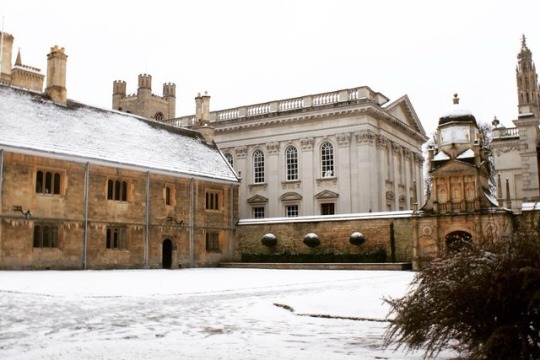
Snow has hit Cambridge.
Copyright: Thomas Fairclough
38 notes
·
View notes